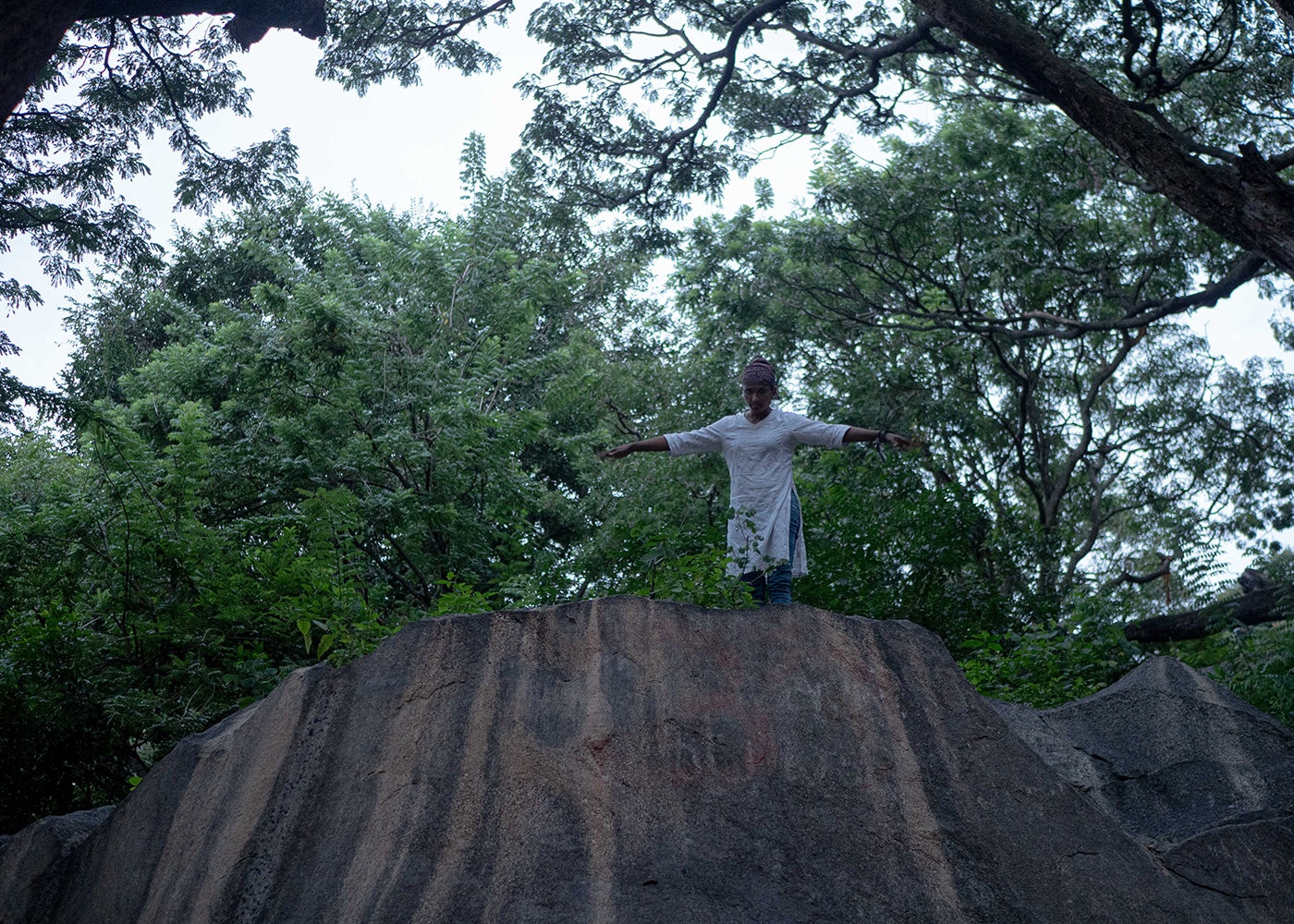Hervé Koubi: Dance and Defiance
With their inimitable blend of contemporary movement and the no-holds barred athleticism of hip-hop and the meticulousness of martial arts, Compagnie Hervé Koubi creates a visual language unlike any other.
Plus
World-class review of ballet and dance.
Commissioned by Fuel and directed by filmmaker JJ Abrahams, this intensely personal film, “Salt & Sugar” for Dance International Glasgow is beautiful, but bracingly unsentimental. At forty, critically acclaimed choreographer and dancer Hemabharathy Palani is looking back and taking stock of her life thus far. This film isn't a linear, autobiographical piece though—it is lyrical and dense, showing Palani dancing, teaching and exercising in a variety of locations, such as forests, shimmering grassy fields and indoors in practice studios.

Still of Hemabharathy Palani in dance film, “Salt & Sugar.” Image credit: JJ Abraham


“Uncommonly intelligent, substantial coverage.”
Your weekly source for world-class dance reviews, interviews, articles, and more.
Already a paid subscriber? Login
With their inimitable blend of contemporary movement and the no-holds barred athleticism of hip-hop and the meticulousness of martial arts, Compagnie Hervé Koubi creates a visual language unlike any other.
PlusOh to love and be loved, what a beautiful mess it is. Nobody captures the contradictions of passion quite like Pina Bausch, whose “Sweet Mambo” is cast in her signature silly-meets-sincere mould—another treat for us Bausch bods out here, less fetching perhaps if you’re not a fan of her highly mannered house style.
PlusContinuing a project launched in 2019, lyrical singer Ekaterina Anapolskaya and former Opéra de Paris sujet, now professor at the ballet school, Gilles Isoart curated an evening of international guests conceived as a celebration of the nineteenth-century heritage.
PlusLondon loves Pina Bausch. The Tanztheater legend is an annual fixture at Sadler’s Wells, and her work still manages to be one of the hottest tickets in town.
Plus
comments